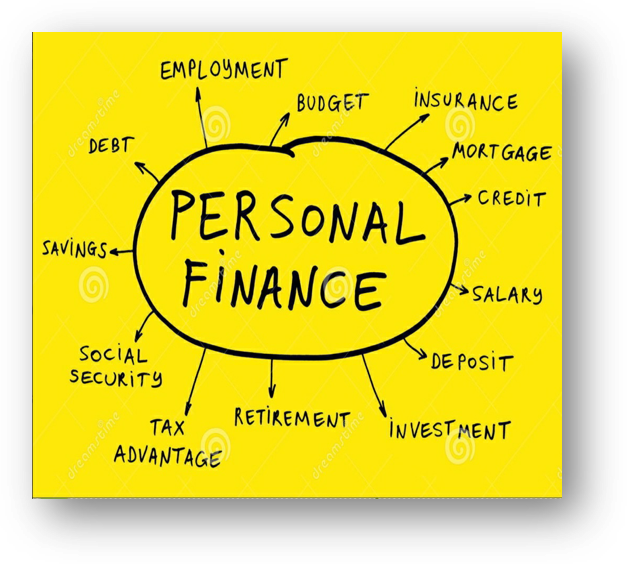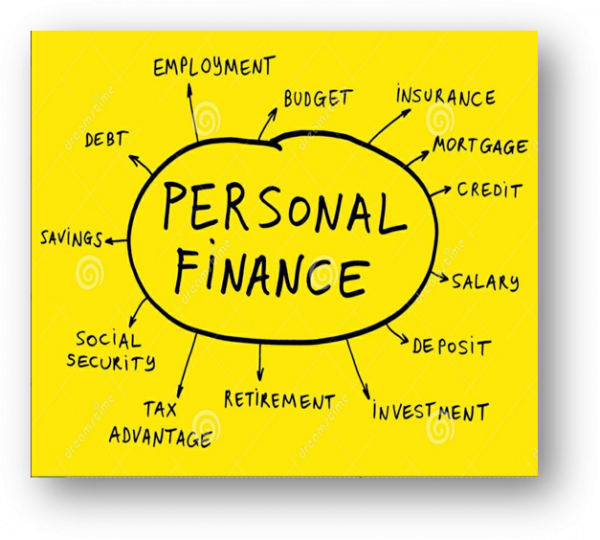One of the important highlights I picked from reading Rich Dad, Poor is this, “If you realize that you’re the problem, then you can change yourself, learn something and grow wiser.” One important area I believe that applies is our finances. Managing personal finances can often feel overwhelming, especially if you live in Nigeria where the cost of food has risen to over 60% while the minimum wage has refused to rise. For the average Nigerian, it seems that daily, they are faced with many expenses and financial obligations that seem to suck up whatever amount of money they are making. If this is you, I understand your plight and would like to recommend you make a few small, intentional changes to the way you manage your finances. I believe when you do, you can significantly improve your financial health.
Read more about Finance
Here are nine practical and easy-to-follow tips that can make a big difference in your personal finances.
1. Create a Realistic Budget
It is often worrying how many adults go about spending their income without a budget in place. Yes, I understand that the money may not be much, however, having a budget in place could go a long way in helping you plan the available money well. A budget is a fundamental tool for managing your finances. Start by listing all your income sources and expenses. Categorize your expenses into needs (e.g., rent, food, transportation) and wants (e.g., dining out, entertainment).
There are budgeting apps such as Money Manager or Wallet by BudgetBakers to track your spending. Regularly reviewing your budget helps you understand where your money goes and identify areas to cut back. For example, you might discover you’re spending too much on airtime and data, which can be reduced by making calls through WhatsApp or subscribing to cheaper data plans more often. You may ask, “What if I have irregular income?” Then you can base your budget on your average monthly income. During high-income months, save more to cover low-income periods.
2. Pay Off Debts First
One of the best advice on personal finance management is to stay out of debt as much as possible. However, if for whatever reason you incur debt, it is important to pay it off as soon as the next income comes in. And if you have multiple debts, prioritize paying off the ones with the highest interest rates first. This strategy, known as the avalanche method, reduces the amount of interest you pay over time. Paying off your debts early frees up more of your income for savings and investments.
3. Automate Your Savings
Saving isn’t old-fashioned. I know there are so many popular voices out there who derive joy from speaking against saving and how saving money is old-fashioned. Nothing can be further from the truth than that. Saving is one of the most time-tested ways to manage personal finances. However, saving money can be challenging. This is because our needs seem to be unending. With every kobo earned, there are more than ten waiting areas of needs to take it up. So, discipline is needed if you are going to do well in saving money. And one of the things that could help make it easier for you is automation. Set up automatic transfers from your salary account or your main account to your savings account. Platforms like PiggyVest and Cowrywise allow you to automate your savings and even lock away funds to avoid the temptation of spending them. Aim to save at least 10% of your income. This small change ensures you consistently save without having to think about it
4. Cut Down or Cut Off Unnecessary Expenses
Cutting down on non-essential spending can free up money for savings and investments. Evaluate your spending habits and identify areas where you can cut back. One major unnecessary expense you may have without knowing is a subscription. Subscription services can quietly drain your finances. Take inventory of all your subscriptions, such as streaming services, gym memberships, and magazines. Cancel any that you don’t use regularly and those you can do without. For instance, if you subscribe to both Netflix and Showmax but rarely watch Showmax, consider cancelling Netflix or if you subscribe to DStv for football, consider not subscribing when the season is over. The money saved from these subscriptions can be redirected to your savings or used to pay off debts. If you are having a challenge identifying other unnecessary expenses to cut down on, get your bank statements from your bank and review them. While at it, categorize your spending, and look out for patterns and areas where you can reduce costs.
Sign up for the Connect Nigeria daily newsletter
5. Cook More at Home
One day I was out at one of the popular eateries in Lagos for lunch with a friend. We placed an order for two plates of Fried Rice and Chicken. That took ten thousand, eight hundred and fifty naira off my bank account. We had a conversation later on about it and one thing we arrived at was that it was cheaper to cook our meals than eat out. Eating out frequently can quickly deplete your finances. Cooking at home is not only healthier but also significantly cheaper. Plan your meals for the week, make a shopping list, and stick to it. By preparing meals at home, you avoid the high costs associated with restaurants and fast food. Additionally, buying food in bulk and cooking in larger quantities can save money and time. For example, cooking a large pot of Jollof rice can provide several meals, reducing the need to spend on lunch at work.
6. Use Public Transportation or Carpool
Transportation costs can take a big chunk out of your budget. If you drive, consider carpooling with colleagues or friends to share fuel costs. Alternatively, use public transportation like BRT buses or Keke Napeps (tricycles), which are often cheaper than driving. In cities like Lagos and Abuja, if you must use ride-hailing services like Bolt, Uber, or InDrive, compare prices for the best deals and if possible use them sparingly and only when necessary.
7. Build an Emergency Fund
An emergency fund acts as a financial safety net. Financial experts recommend saving at least three to six months’ worth of living expenses as an emergency fund. This fund will help you handle unexpected expenses like medical emergencies, car repairs, or sudden job loss without resorting to high-interest loans. To get started, start gradually with small, regular contributions. You can use the automated withdrawal to automate transfers to your emergency fund. This will help ensure consistency. Also, consider setting up your emergency funds in a high-yield savings account. It offers easy access and grows your savings with interest.
8. Invest Wisely
Investing is crucial for long-term financial growth. Consider diverse investment options such as stocks, mutual funds, real estate, or government bonds. It is common while starting with investing to want to look out for options with high returns. While this is nice, it is best practice to pay attention to the risks involved. Research and choose investments that match your risk tolerance and financial goals. You can start with low-risk options like mutual funds or government bonds. As you become more comfortable, you can then diversify into higher-risk, higher-reward investments. Always seek professional advice if you’re unsure as a financial advisor can provide valuable insights and help you make informed decisions.
9. Increase Your Income Streams
I had to save this for the last because of how important it is to the discussion. One important change that will make a big difference in your personal finances is to increase your income. This alone can significantly enhance your financial situation. If you currently run a business, you may consider other aspects of your business you are currently not taking advantage of to bring in extra income for you. Take for instance you run a walk-in restaurant, you may consider offering home catering services or event catering. In addition, you may consider stocking up on complementary products that your customers can buy while at your restaurant. If you are a 9—5 worker, you may consider taking up side hustle, freelance work, monetizing a hobby, digital marketing, online tutoring, or e-commerce. For instance, if you are a banker, you can build your personal brand around Personal Financial Management and offer services in the same as a side hustle. From this, you can create online courses, offer consulting, coaching, and training, and even write books on the subject. This approach will be significantly beneficial to you as it is a win for you on every side. By offering personal finance management services, you deepen your knowledge of personal finance to help you do your job better and at the same time, you can bring your experiences working in the banking sector to bear in helping individuals better manage their personal finances.
Register to attend the CN Business Mixer
Concluding Thoughts
Implementing these nine small changes can significantly improve your financial situation over time. It’s advisable to not just right into implementing all nine changes as you may become overwhelmed. Start with one or two changes and gradually incorporate more as you become comfortable. These steps will not only enhance your financial stability but also give you peace of mind and a brighter financial future. Also, consistency is key, so stick with these habits and regularly review your financial goals and progress. By making these adjustments, you’ll be on your way to better financial health and stability.
Featured Image Source: LinkedIn
Got a suggestion? Contact us: [email protected]


